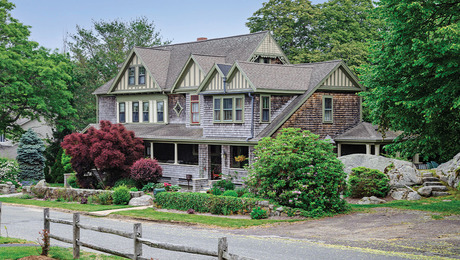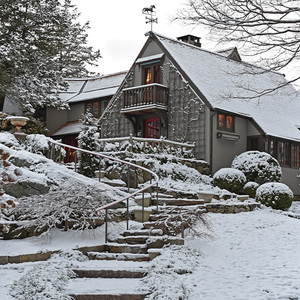hey i am a small time contractor residing on the coast in oregon.
being constantly damp, exterior wood around here tends to mold and rot if not kept clean.
i have been asked on several occasions to pressure wash houses- mostly cedar shake siding and comp roofing- but i have some reservations about just jumping into this, as i have heard complaints of damage to the wood especially. my question mainly involves what precautions to take to avoid damage, and what psi and gpm are necessary but not overkill.
Discussion Forum
Discussion Forum
Up Next
Video Shorts
Featured Story

From plumbing failures to environmental near disasters, OHJ staffers dish on our worst and best moments.
Featured Video
SawStop's Portable Tablesaw is Bigger and Better Than BeforeHighlights
"I have learned so much thanks to the searchable articles on the FHB website. I can confidently say that I expect to be a life-long subscriber." - M.K.














Replies
Where on the Oregon Coast? I'm down Coos Bay way.
Pressure washing is often a bad idea on wood surfaces unless you've got experience and a surgeon's touch, especially softer woods like cedar shingles and shakes.
On painted surfaces of those materials and others, like fiber cement, careful work with a pressure washer may be effective, but take care around window trim, vents, flashings, etc.
There are a bunch of products for cleaning off the gunk you describe...most are built around oxalic acid, which, to use effectively also has a learning curve and may require some elbow grease and a scrub brush and a garden hose with a good adjustable nozzle.
And you definitely do not want to take a pressure washer to comp roofing.
Effectively using a pressure washer on any surface, especially softer wood surfaces, takes some measure of experience to get it right... just like any other task.
In the matter of mildew or mold on wood... I've read that sometimes you can force the mold spores deeper into the wood where they will continue to cause a problem. It might be a good idea to first treat the area with a mildew or mold killing agent.
The difference between stupidity and genius is that genius has its limits. -Albert Einstein
http://www.peteforgovernor.com
Doug, I would use a 1500-2000 psi with 4-5 gpm's. I found that this is ample for removal of dirt, grime and mildew. Much stronger in psi will result in removal of paint and the etching of the wood. Only get close enough to do the job required. If I were doing concrete go stronger on the psi, although the 1500-2000 psi will do the job more equates to a faster job. I mounted a 55 gallon drum horizontal on a trailer with the bottom of the drum going to the suction of the pump. I also connected to this a water line that a garden hose can be connected to. Both have valves, so that I can either spray water or spray whatever I have in the 55 gallon drum. This set up will allow you to spray chemicals at high pressure rather than the low pressure that the customary pick up tube method uses on store bought power washers. Here in the south I mix 3 gallons bleach then fill the drum full of water. A mixture stronger than this has a tendancy to chaulk paint. This mixture gets rid of all dirt and mildew. After spraying the mixture on the house I swap my valves over to water then rinse very good, especially the window (no streaks), customers love this part!! By the way, start at the bottom of the house and work up spraying chemical then rinse from top to bottom. This will avoid streaks on the siding.
Had to edit , forgot to mention that I also add half a bottle of liquid dish soap, this helps aid in the mixture sticking to the house longer to do the work required and also helps you to see where you have sprayed.
Semper Fi
Edited 2/21/2006 7:43 pm ET by Jarhead
yeah thanks man i really appreciate the info ive been looking at models between 2500 and 4000 psi but the higher gpm aspect is one i hadnt thought about. as far as every thing else, you sound like youve got something with the bleach solution, thanks again for the tip
Very rarely do I have to actually use "pressure" to clean a house. I primarily use the power washer as an applicator of chemicals, due to the ability of applying at higher pressures. Meaning more reach. To the gables, soffits, facia, etc..... even on two stories with out having to climb on a ladder or some other apperatus. Brick and concrete are another animal and need or desire a higher pressure. Meaning if you only have a 1500-2000 psi machine you will need to get closer to your work, real close depending on mildew. I have seen jobs so bad that moss has started to grow on the brick. as previously noted on another post, tips are your friend.
Semper Fi
You can decrease the pressure on a non-adjustable machine by putting in the next size up nozzle tip. IE: A tip for a 5 gallon per minute machine on a 4 gallon per minute machine will drop the pressure from 2000 psi by 20% to 30%. For that "soft touch". ;-)